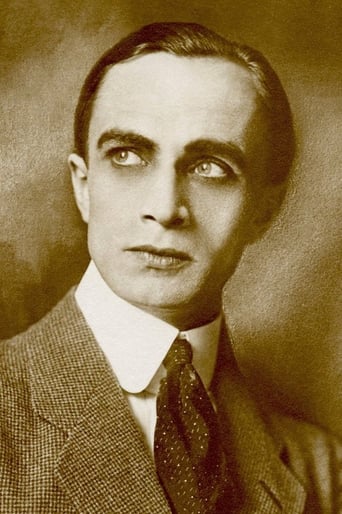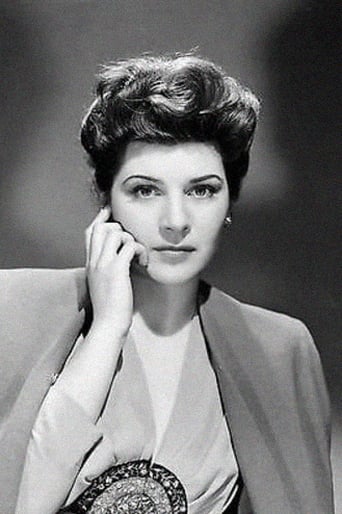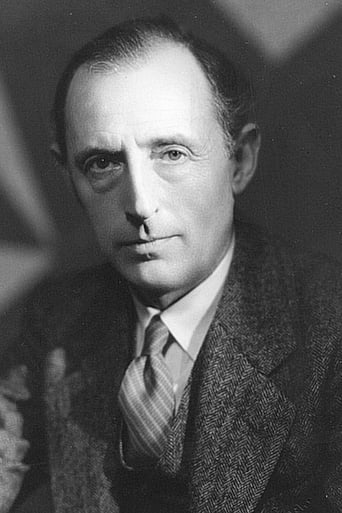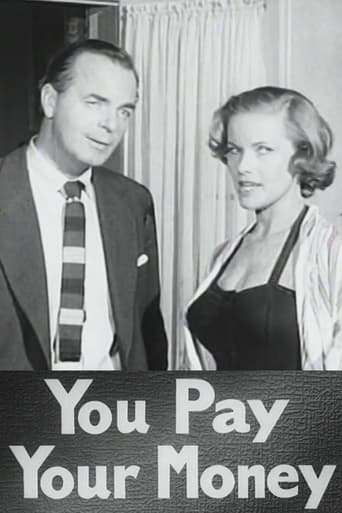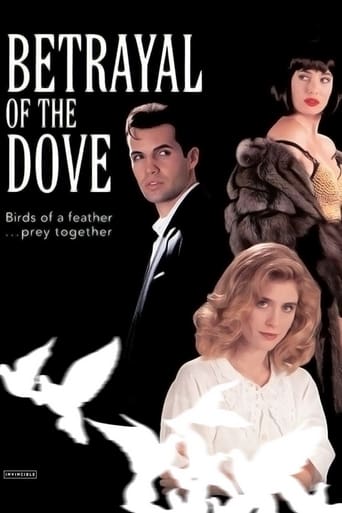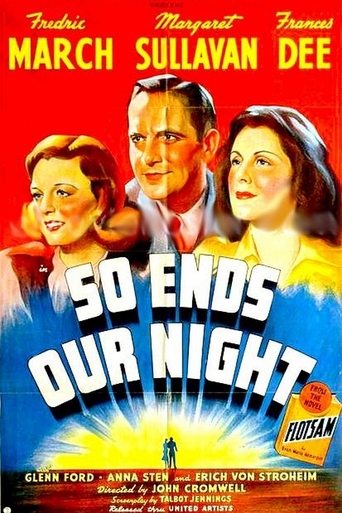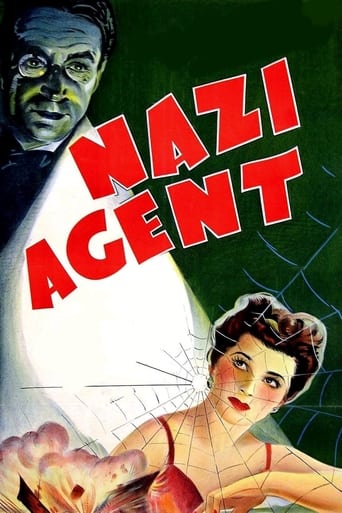
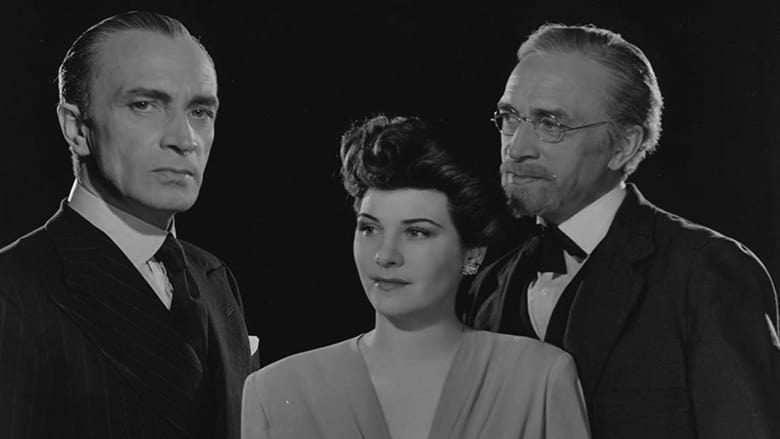
Nazi Agent (1942)
Humble stamp dealer Otto Becker has little to do with international politics, so when he receives a surprise visit from his estranged twin brother and Nazi spy, Baron Hugo von Detner, his world is thrown into turmoil. Threatening Becker with deportation, Hugo forces him to use his shop as a front for espionage.
Watch Trailer
Cast
Similar titles
Reviews
i must have seen a different film!!
Expected more
Excellent but underrated film
It is neither dumb nor smart enough to be fun, and spends way too much time with its boring human characters.
Directorial Debut for Jules Dassin and it Shows a Talent in the Rough as the Film has Flourishes that Enhance its Low Budget. It has Style. Conrad Veidt is Excellent in what Starts Out as a Dual Role.The Film was Made Early in the Turmoil of the Beginning of WWII and as such was Able to Show a Sympathetic German. The Implausibility of the Story is a Suspension of Disbelief but Nevertheless it is Intriguing and Suspenseful with Good Performances All Around.An MGM B-Movie with Class. Dassin would Dismiss All of His MGM Output in Later Years. Worth a Watch because of the Director and Veidt and for an Early Hollywood Effort to Rally the Citizenry.
Remember the 1964 Bette Davis thriller-Dead Ringer? In that one, Bette killed her identical twin sister who was quite bad and assumed her identity and by the end went on trial for killing the evil sister's husband as everyone thought she was the lady. I see almost the same premise in this 1942 film with the exception that the horrible Nazis are involved.Conrad Veidt did not look well in this film and in fact, the following year, he succumbed to a coronary at age 50. In this film, he shoots his Nazi brother and assumes his identity in order to destroy the spy ring. Ironically, in the end, he is returned to Germany for whom he is really is. The reason why this occurs shall remain a secret to you until you view this film.The story is definitely one that is intriguing. It will hold your interest in the never ending saga of good triumphing over evil. The end was just too ironic. We had a real American hero here.
In 1926 Veidt made another film in which he played a good brother and a bad brother--The Brothers Schellenberg. They both came from an educated but penniless class; the good brother founded a commune and the bad one was a ruthless, social-climbing capitalist. The good brother, as I recall, had a beard and wore rumpled clothes, while the bad one was clean-shaven and and had an elegant wardrobe of evening clothes.... In Nazi Agent, the two brothers have similar physical distinctiveness but now they of the landowning class: the gentle academic driven from Germany by the Nazi aversion to historical truth, and the potently Nazi German Consul in "State City." The twist is that the good brother must disguise himself as the bad brother in order to make his contribution to the anti-Nazi effort by breaking up a nest of spies. It seems to me that the twin-substitution plot usually involves women, not men--with the notable exception of Dead Ringers...? Veidt gets to do what Jeremy Irons did, play twin A pretending to be twin B in such a way that the audience, but not twin B's associates, sees the difference. Even old Fritz, who has known the twins from childhood, recognizes Otto by a scar, not by his manners.The film seems to have been made before Pearl Harbor and released afterwards; in the world it depicts, Canada has joined the war but the U.S. is still on somewhat friendly terms with Germany.Another viewer commented that Veidt is not sexually attractive. Hmm. I think that the character he plays in this film is not supposed to be very sexually aggressive--the big romantic scene does not even involve a kiss, and the bookseller twin has been up to this time someone who is more interested in rare stamps than in women. But one might check out his two films for Michael Powell, or Escape, or A Woman's Face, in all of which his character is supposed to be, and is, extremely sexually attractive. It is interesting that in both Escape and A Woman's Face he at first appears as sexy and charming, in different ways, a real Prince Charming for the very different heroines of the two films. Then, towards the end of the films, he reveals himself for the ruthless Nazi he is, showing extreme cruelty of various kinds.So although Veidt could turn on and off the sexiness and otherwise vary his characters, he made three films in this period in which he is the good German (OK, Scandinavian in A Woman's Face) and the bad Nazi: Escape, A Woman's Face, and Nazi Agent. By this time, I believe, he was a British citizen, contributing generously to the war effort, but it's interesting that he was not playing The Hun who tosses babies out the window, as Von Stroheim did during WWI, but two men, one who loves music and women and knowledge, the other who sees Nazism as the only path to success and riches, and who has been utterly corrupted by it.
I saw this movie as a teen (they used to show it on T.V.) a lot and always loved it. Conrad Veidt plays twins - good versus evil. I taped it last year (2002)from Turner Classic Movies (after calling them and asking them to play it). It's still a wonderful movie. Conrad Veidt is a Nazi you love to hate. (Casablanca, Escape, A Woman's Face, All Through the Night) Playing twins, you see the angst in the good brother (Otto Becker) knowing his twin (Herr Baron) is a Nazi trying to destroy the U.S. - precisely why Otto left Germany. Herr Baron seeks out his brother in N.Y. to use his bookstore as part of his Nazi operation. Of course, Otto refuses to no avail and winds up a powerless pawn. He lives above the store under constant surveillance. One night, Herr Baron gets lonely and pays Otto a visit alone. An argument/struggle ensues, and Otto kills the Baron. Thinking fast, he decides the only way out is to impersonate his brother to save our country. He manages to fool everyone, except for the Baron's man-servant Fritz who came over with him. Otto's cover is blown when he emerges from the shower and Fritz spots a tell tale scar on his back. When Otto emerges in a bathrobe, Fritz has a glass of warm milk waiting for him, as in the old days. Otto's fears are unnecessary as Fritz' loyalty to him is undying.Otto succeeds in foiling all Herr Baron's plans but subsequently pays the price when he has to give himself up in order to save someone's life. Watch his face when he is being deported back to Germany and he passes the Statue of Liberty. The pain and tears he fights back are real.
